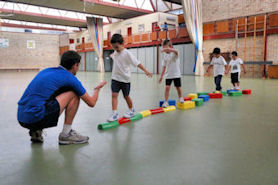British Reggae Artists Organize Charity Concert Amid Live Aid's Rise

In February 1985, while millions tuned into Live Aid at Wembley Stadium, a group of British reggae musicians conducted their own charitable initiative to support victims of famine in Ethiopia. This lesser-known effort, known as the British Reggae Artists Famine Appeal (Brafa), was spearheaded by Leon Leiffer, a founding member of the reggae group The Blackstones. Disheartened by the lack of representation of reggae artists at the prominent Live Aid event, Leiffer and his collaborators sought to raise awareness and funds through their own concert and charity single, 'Let's Make Africa Green Again.'
The catalyst for this movement came from reports of starvation in Ethiopia, particularly those highlighted by journalist Michael Buerk, which resonated deeply within London’s Rastafarian community. "My initiative was we are always singing about Africa so let’s put our money where our mouth is and do something about it," Leiffer stated, reflecting on the urgency that motivated their actions.
On February 24, 1985, over 200 artists gathered in a north London recording studio to contribute to the charity single. Notable participants included Janet Kay, Aswad, and Eddie "Tan Tan" Thornton, who had previously collaborated with The Beatles. The single was released on April 21, 1985, through Island Records, although it received significantly less media attention compared to Band Aid’s 'Do They Know It’s Christmas?' which was released just months prior. Despite this, 'Let's Make Africa Green Again' managed to climb into the UK Top 100 charts.
The lack of diversity in the lineup for Live Aid, which featured major acts such as Queen and U2, left many reggae artists feeling overlooked. Leiffer expressed, "We weren’t feeling pleased with Bob Geldof and Midge Ure or whoever was responsible for calling all these artists to perform. We had Aswad in the charts, we had Trevor Walters in the charts, we had Janet Kay in the charts, just to mention a few, and none of us was called upon as if we weren’t important enough to play a role."
In response to the oversight, Leiffer and fellow artist Gene Rondo organized a concert in May 1986 at Shoreditch Park in Hackney, which drew over 10,000 attendees. The event not only raised more than £8,000 but also featured several artists who had participated in the Brafa single.
Despite the modest success compared to Live Aid, the Brafa initiative was significant for the local Afro-Caribbean community. Their contributions were later acknowledged when Brafa Square was named in 2021, commemorating their efforts and the historical context of the initiative, especially following the social movements sparked by George Floyd's death.
While the legacy of Live Aid continues to dominate popular narratives surrounding charity concerts, Leiffer and his colleagues take pride in their grassroots efforts. “They didn’t invite us, so we did our own thing. We made ourselves proud that we could put in whatever small fee to what Live Aid did,” Leiffer remarked, signifying the resilience and community spirit that propelled their actions during a critical moment in humanitarian history.
Advertisement
Tags
Advertisement





